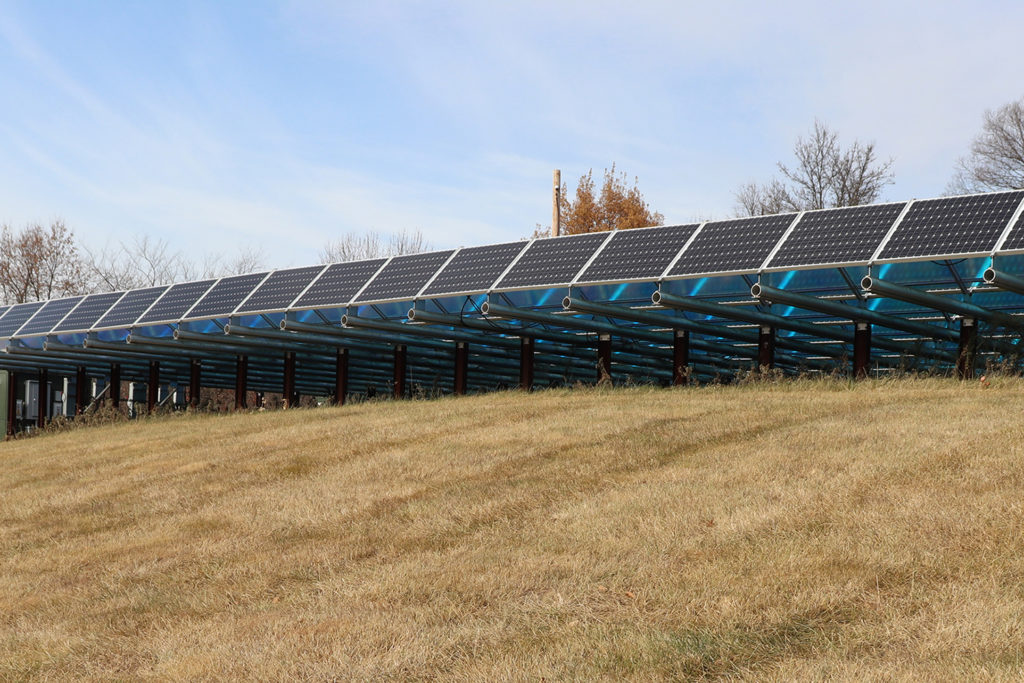
A Minnesota electric cooperative is making its renewable energy projects even more environmentally friendly by adding a pollinator garden that officials say will benefit wildlife for years to come.
Wright-Hennepin Cooperative Electric Association has three solar arrays at its headquarters and recently began conversion of a buffer along a portion of its service drive to pollinator habitat.
“This is a demonstration project, covering about 1.25 acres, along the edge of two of the solar arrays,” said Andrea Unger, marketing and member service director for the Rockford-based co-op. “It’s a steep hill and we see this as an opportunity to put it to productive use. This is a great chance to do something better with the land.”
The vegetation being planted on the site includes varieties common to Minnesota’s northern prairie landscape before development, which makes it suitable for bees, butterflies, birds and other wildlife native or migratory to the area, Unger said.
“Members and local community leaders frequently visit our grounds to see our solar arrays,” said Wright-Hennepin CEO Tim Sullivan. “Like other co-ops across the country, this is one more way we’re showcasing a tangible commitment to environmental stewardship.”
The co-op has been working with a landscaping firm that’s been involved with naturalization projects on Great River Energy’s main campus in Maple Grove, Minnesota. Contractors began site preparations earlier this autumn before the existing turf grass and vegetation entered dormancy, and they plan to return in early spring to begin plantings on the site.
“Contractors will work with us on weed control and cultivation for a few years to ensure that the plantings get established,” said Unger. “After a few years, we expect the site to be virtually maintenance-free.”
Read More:
Arkansas Co-ops Greening Up the Grid With Sustainable Habitat Projects
Decision on Federal Protection for Monarch Butterfly Pushed to December 2020
Co-op Plantings Host Monarch Butterfly Migrations
Derrill Holly is a staff writer at NRECA.